On April 30, Nancy Bélanger, the Commissioner of Lobbying Canada, recommended to the Parliament that they amend the nation’s federal Lobbying Act to improve transparency when the travel of public officials is sponsored by lobbyists. Bélanger made her recommendation in […]
On April 30, Nancy Bélanger, the Commissioner of Lobbying Canada, recommended to the Parliament that they amend the nation’s federal Lobbying Act to improve transparency when the travel of public officials is sponsored by lobbyists.
Bélanger made her recommendation in her report to the House of Commons and to the Senate on her office’s investigation into sponsored travel provided by lobbyists.
The Commissioner found no violation of law related to sponsored travel, but did find a gap in the level of transparency of information disclosed in the Registry of Lobbyists.
“Amending disclosure requirements to include additional information that the Commissioner of Lobbying considers relevant would ensure that sponsored travel is captured as part of the context in which lobbying occurred,” said Bélanger in her press release.
April 19, 2019 •
General Election Called in Newfoundland and Labrador
On April 17, Newfoundland and Labrador Premier Dwight Ball issued a writ of election for the provincial general election to take place on May 16. On the same day, Bruce Chaulk, the Chief Electoral Officer of Newfoundland and Labrador, issued […]
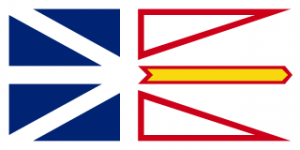 On April 17, Newfoundland and Labrador Premier Dwight Ball issued a writ of election for the provincial general election to take place on May 16.
On April 17, Newfoundland and Labrador Premier Dwight Ball issued a writ of election for the provincial general election to take place on May 16.
On the same day, Bruce Chaulk, the Chief Electoral Officer of Newfoundland and Labrador, issued election writs to all 40 district returning officers of the province announcing the new date.
The advance poll date is May 9 and the deadline for candidate nominations is April 25.
Elections NL is also set to accept early voting applications, which will be available between April 25 and May 9.
Ball called for the election after tabling the budget.
“I am now seeking a mandate from the people of our province to continue our plan,” Ball announced according to the Western Star.
April 4, 2019 •
Prince Edward Island General Election To Be Held April 23
On April 23, a general election for the Legislative Assembly of Prince Edward Island will be held. The 65th General Assembly was dissolved on March 26. On March 27, Premier Wade MacLauchlan called for the general election for the 66th […]
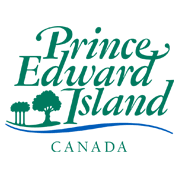 On April 23, a general election for the Legislative Assembly of Prince Edward Island will be held.
On April 23, a general election for the Legislative Assembly of Prince Edward Island will be held.
The 65th General Assembly was dissolved on March 26. On March 27, Premier Wade MacLauchlan called for the general election for the 66th General Assembly to be held on the April date.
A binding Election System Referendum regarding the province’s voting system is also scheduled for April 23.
The question on the referendum ballot is, “Should Prince Edward Island change its voting system to a mixed member proportional voting system?”
Advance polls for early voting will be held on April 13, April 15, and April 18.
April 4, 2019 •
Prince Edward Island Lobbying Law Comes into Force
A new lobbying law for the province of Prince Edward Island came into effect on April 1. Bill No. 24, the Lobbyist Registration Act, was passed in December of 2017 during the Third Session of the 65th General Assembly of […]
 A new lobbying law for the province of Prince Edward Island came into effect on April 1. Bill No. 24, the Lobbyist Registration Act, was passed in December of 2017 during the Third Session of the 65th General Assembly of the Prince Edward Island Legislative Assembly.
A new lobbying law for the province of Prince Edward Island came into effect on April 1. Bill No. 24, the Lobbyist Registration Act, was passed in December of 2017 during the Third Session of the 65th General Assembly of the Prince Edward Island Legislative Assembly.
Consultant lobbyists, in-house lobbyists, and employers of in-house lobbyists are now required to register with the Registrar when communicating with a public office holder, directly or through grassroots communications, in an attempt to influence them on a variety of issues.
Additionally, consultant lobbyists are required to register when communicating with a public-office holder to influence the awarding of any contract by or on behalf of the Crown or arrange a meeting between a public-office holder and any other person.
Registrants are required to file returns with this Registrar every six months detailing any relevant subject matters lobbied, including legislative and regulatory proposals, the techniques of communication the lobbyist has used or expects to use to lobby, the employer or client for which the registrant is lobbying, and the identification of entities or persons paying more than $750 per fiscal year to the registrant to lobby.
Lobbying on a contingency fee basis is prohibited for consultant lobbyists and former public office holders are prohibited from lobbying for a period of six months after leaving office. Penalties for violations of the Act include fines up to $25,000.
March 27, 2019 •
Nanaimo–Ladysmith (British Columbia) By-Election Scheduled for May 6
On May 6, a by-election will be held for the electoral district of Nanaimo–Ladysmith (British Columbia) to fill a vacancy in the Canadian House of Commons. On January 7, the Chief Electoral Officer of Canada, Stéphane Perrault, had received official […]
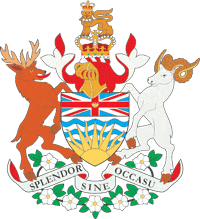 On May 6, a by-election will be held for the electoral district of Nanaimo–Ladysmith (British Columbia) to fill a vacancy in the Canadian House of Commons.
On May 6, a by-election will be held for the electoral district of Nanaimo–Ladysmith (British Columbia) to fill a vacancy in the Canadian House of Commons.
On January 7, the Chief Electoral Officer of Canada, Stéphane Perrault, had received official notice from the Speaker of the House of Commons that the seat became vacant following the resignation of Sheila Malcolmson, who resigned on January 2 to run in a provincial byelection.
On March 24, Elections Canada declared the May election date and announced the opening of its local office in Nanaimo-Ladysmith.
March 20, 2019 •
Ontario to Centralize Public Procurement
Treasury Board President Peter Bethlenfalvy announced the government of Ontario intends to centralize all provincial procurements in an effort to save the public money. On March 20, Bethlenfalvy tweeted centralizing government procurement will save $1 billion a year, make it […]
Treasury Board President Peter Bethlenfalvy announced the government of Ontario intends to centralize all provincial procurements in an effort to save the public money.
On March 20, Bethlenfalvy tweeted centralizing government procurement will save $1 billion a year, make it easier and more efficient to deliver services to the people, and allow the province to invest in other core public services like healthcare and education.
In his press release on Monday, Bethlenfalvy said there would be interim measures, such as the limiting of long-term contracts during the building of a centralized system. The province will also hire consulting services to support the development of a centralized procurement system.
“Currently there is far too much duplication and fragmentation in the system. We are not taking advantage of our shared buying power to drive efficiencies and cost savings,” Bethlenfalvy told CP24.
By centralizing procurement (government purchasing), we will:
Save $1 billion per year
Make it easier and more efficient to deliver services to the people
Invest in core services that Ontarians rely on, like healthcare and education@billwalkermpp @StanChoMPP @BobBaileyPC pic.twitter.com/YKRumFY7zY
— Peter Bethlenfalvy (@PBethlenfalvy) March 20, 2019
On March 7, a bill to amend Saskatchewan’s lobbying law was introduced in the Legislative Assembly. Bill No. 615, An Act to amend The Lobbyist Act, would remove the current 100-hour annual threshold required to trigger registration for in-house lobbyists. […]
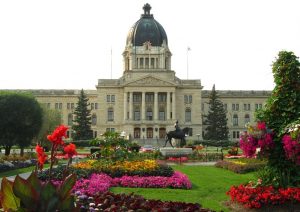 On March 7, a bill to amend Saskatchewan’s lobbying law was introduced in the Legislative Assembly.
On March 7, a bill to amend Saskatchewan’s lobbying law was introduced in the Legislative Assembly.
Bill No. 615, An Act to amend The Lobbyist Act, would remove the current 100-hour annual threshold required to trigger registration for in-house lobbyists.
Additionally, the bill would eliminate the registration exemption for non-profits, except for those non-profit entities with no more than five employees.
The bill also prohibits Members of the Legislative Assembly (MLAs) from accepting gifts, unless a gift is accepted in accordance with The Members’ Conflict of Interest Act. The gift prohibition in the bill extends to an MLA’s staff, members of the Executive Council and their staff, employees of the ministry, individuals in certain appointed positions, and employees, officers, directors, and members of governmental institutions.
If the legislation passes, the amendments would come into force on Assent.
February 25, 2019 •
Election for Kings-Hants (Nova Scotia) Vacant Seat to Be Held on Fixed October Election
On October 21, 2019, the fixed date for federal elections, the election for the now-vacant seat in the House of Commons representing Kings-Hants (Nova Scotia) will be held. Because this vacancy occurred less than nine months before October’s fixed-date general […]
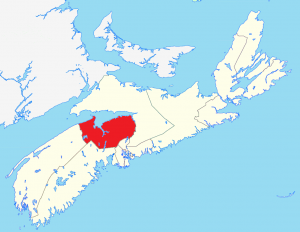 On October 21, 2019, the fixed date for federal elections, the election for the now-vacant seat in the House of Commons representing Kings-Hants (Nova Scotia) will be held.
On October 21, 2019, the fixed date for federal elections, the election for the now-vacant seat in the House of Commons representing Kings-Hants (Nova Scotia) will be held.
Because this vacancy occurred less than nine months before October’s fixed-date general election, no by-election will be held.
On February 20, the Chief Electoral Officer of Canada, Stéphane Perrault, received official notice from the Speaker of the House of Commons that the seat for Kings–Hants (Nova Scotia) became vacant following the resignation of Scott A. Brison, who left office on February 10 to take a position working for the Bank of Montreal.
February 19, 2019 •
Bill Would Transfer Registry of Lobbyists in Quebec to Lobbyists Commissioner
On February 14, a bill was introduced in the National Assembly of Quebec to allow the Lobbyists Commissioner to maintain the registry of lobbyists. Currently, paperwork filed by lobbyists is processed with the Ministry of Justice. Bill 6 amends the […]
 On February 14, a bill was introduced in the National Assembly of Quebec to allow the Lobbyists Commissioner to maintain the registry of lobbyists.
On February 14, a bill was introduced in the National Assembly of Quebec to allow the Lobbyists Commissioner to maintain the registry of lobbyists.
Currently, paperwork filed by lobbyists is processed with the Ministry of Justice. Bill 6 amends the Lobbying Transparency and Ethics Act in order to transfer responsibility for keeping the registry of lobbyists to the Lobbyists Commissioner.
The bill also creates a three-year statute of limitations for the prosecution of lobbying violations, starting from the time a prosecutor becomes aware of a violation. A prosecution would be prohibited if the commission of the offense occurred more than seven years earlier.
January 14, 2019 •
Canadian House of Commons By-Elections Set for February 25
On February 25, three by-elections will be held to fill vacancies in the Canadian House of Commons. The by-elections will take place for the electoral districts of Burnaby South (British Columbia), Outremont (Quebec) and York–Simcoe (Ontario). The seat for Burnaby […]
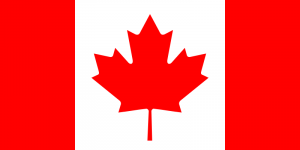 On February 25, three by-elections will be held to fill vacancies in the Canadian House of Commons. The by-elections will take place for the electoral districts of Burnaby South (British Columbia), Outremont (Quebec) and York–Simcoe (Ontario).
On February 25, three by-elections will be held to fill vacancies in the Canadian House of Commons. The by-elections will take place for the electoral districts of Burnaby South (British Columbia), Outremont (Quebec) and York–Simcoe (Ontario).
The seat for Burnaby South (British Coumbia) became vacant following the resignation of Kennedy Stewart, who resigned on September 14 in order to run for mayor of Vancouver.
The seat for Outremont (Quebec) became vacant following the resignation of Tom Mulcair, who left office to teach at the at Universite de Montreal and to become a regularly scheduled political commentator at CJAD radio and CTV news.
The seat for York–Simcoe (Ontario) became vacant following the resignation of Peter Van Loan, who resigned on September 30 to return to the practice of law.
January 9, 2019 •
Amendments to Canada’s Election Laws Take Effect in June 2019
On June 13, 2019, amendments to the Canada Elections Act affecting spending limits for third parties and political parties takes effect. Bill C-76, the Elections Modernization Act, received Royal Assent on December 13, 2018. The bill is scheduled to take […]
 On June 13, 2019, amendments to the Canada Elections Act affecting spending limits for third parties and political parties takes effect. Bill C-76, the Elections Modernization Act, received Royal Assent on December 13, 2018.
On June 13, 2019, amendments to the Canada Elections Act affecting spending limits for third parties and political parties takes effect. Bill C-76, the Elections Modernization Act, received Royal Assent on December 13, 2018.
The bill is scheduled to take effect six months after Royal Assent, unless Elections Canada determines some portion of the law should take effect earlier. The legislation establishes measures to increase transparency regarding the participation of third parties in the electoral process by adding reporting requirements for third parties engaging in partisan activities, partisan advertising, and election surveys.
Additionally, the bill creates an obligation for third parties to open a separate bank account for expenses and creates an obligation for political parties and third parties to identify themselves in partisan advertising.
The bill also extends voting hours on advance polling days to encourage participation in the election process for voters. Bill C-76 also amends the Parliament of Canada Act to prevent the calling of a by-election for a vacant seat in the House of Commons within nine months before a scheduled general election.
January 9, 2019 •
By-Election Nanaimo–Ladysmith (British Columbia) Seat in House of Commons To Be Announced on Future Date
Sometime before July 6, 2019, a by-election will be announced for the seat in the House of Commons representing Nanaimo–Ladysmith in the province of British Columbia. On January 7, the Chief Electoral Officer of Canada, Stéphane Perrault, received official notice […]
 Sometime before July 6, 2019, a by-election will be announced for the seat in the House of Commons representing Nanaimo–Ladysmith in the province of British Columbia.
Sometime before July 6, 2019, a by-election will be announced for the seat in the House of Commons representing Nanaimo–Ladysmith in the province of British Columbia.
On January 7, the Chief Electoral Officer of Canada, Stéphane Perrault, received official notice from the Speaker of the House of Commons that the seat for Nanaimo–Ladysmith (British Columbia) became vacant following the resignation of Sheila Malcolmson, who resigned on January 2 to run in a provincial by-election.
Under the law, the by-election date must be announced between January 18 and July 6, 2019, and will signal the start of the by-election period.
According to Elections Canada, the earliest date the by-election can be held is February 25, 2019.
January 4, 2019 •
2019 Sackville-Cobequid By-Election Date Announcement Due in Spring
Sometime before May 16, 2019, a by-election will be announced for the seat in the House of Assembly representing Sackville-Cobequid in the province of Nova Scotia. The Sackville-Cobequid seat became vacant with the resignation of MLA David Wilson on November […]
 Sometime before May 16, 2019, a by-election will be announced for the seat in the House of Assembly representing Sackville-Cobequid in the province of Nova Scotia.
Sometime before May 16, 2019, a by-election will be announced for the seat in the House of Assembly representing Sackville-Cobequid in the province of Nova Scotia.
The Sackville-Cobequid seat became vacant with the resignation of MLA David Wilson on November 16, 2018.
When Wilson tendered his resignation to the Clerk of the House, he would not reveal his future plans. “It’s just time for me to look at other things,” said Wilson, according CBC.com.
A writ for a by-election must be issued six months from the date of his resignation. The by-election must be held on a Tuesday between 30 and 46 days from the date that writ is issued.
December 18, 2018 •
Prince Edward Island Lobbying Laws Scheduled to Come into Force on April 1, 2019
The new lobbying law for the province of Prince Edward Island is scheduled to come into effect April 1, 2019, according to its Department of Justice and Public Safety. Bill No. 24, the Lobbyist Registration Act, was passed in December […]
 The new lobbying law for the province of Prince Edward Island is scheduled to come into effect April 1, 2019, according to its Department of Justice and Public Safety. Bill No. 24, the Lobbyist Registration Act, was passed in December of 2017 during the Third Session of the 65th General Assembly of the Prince Edward Island Legislative Assembly and has already received Royal Assent. Currently the province is setting up an Office of the Lobbyist Registrar.
The new lobbying law for the province of Prince Edward Island is scheduled to come into effect April 1, 2019, according to its Department of Justice and Public Safety. Bill No. 24, the Lobbyist Registration Act, was passed in December of 2017 during the Third Session of the 65th General Assembly of the Prince Edward Island Legislative Assembly and has already received Royal Assent. Currently the province is setting up an Office of the Lobbyist Registrar.
Upon the Act coming into force, consultant lobbyists, in-house lobbyists, and employers of in-house lobbyists will be required to register with the Registrar when communicating with a public office holder, directly or through grassroots communications, in an attempt to influence them on a variety of issues. Additionally, a consultant lobbyist will be required to register when communicating with a public-office holder to influence the awarding of any contract by or on behalf of the Crown or arrange a meeting between a public-office holder and any other person.
Registrants will be required to file returns with this Registrar every six months detailing any relevant subject matters lobbied, including legislative and regulatory proposals, the techniques of communication the lobbyist has used or expects to use to lobby, the employer or client for which the registrant is lobbying, and the identification of entities or persons paying more than $750 per fiscal year to the registrant to lobby.
Lobbying on a contingency fee basis is prohibited for consultant lobbyists and former public office holders are prohibited from lobbying for a period of six months after leaving office. Penalties for violations of the Act include fines up to $25,000. Canada’s three territories still do not have laws regulating lobbying.
State and Federal Communications, Inc. provides research and consulting services for government relations professionals on lobbying laws, procurement lobbying laws, political contribution laws in the United States and Canada. Learn more by visiting stateandfed.com.


